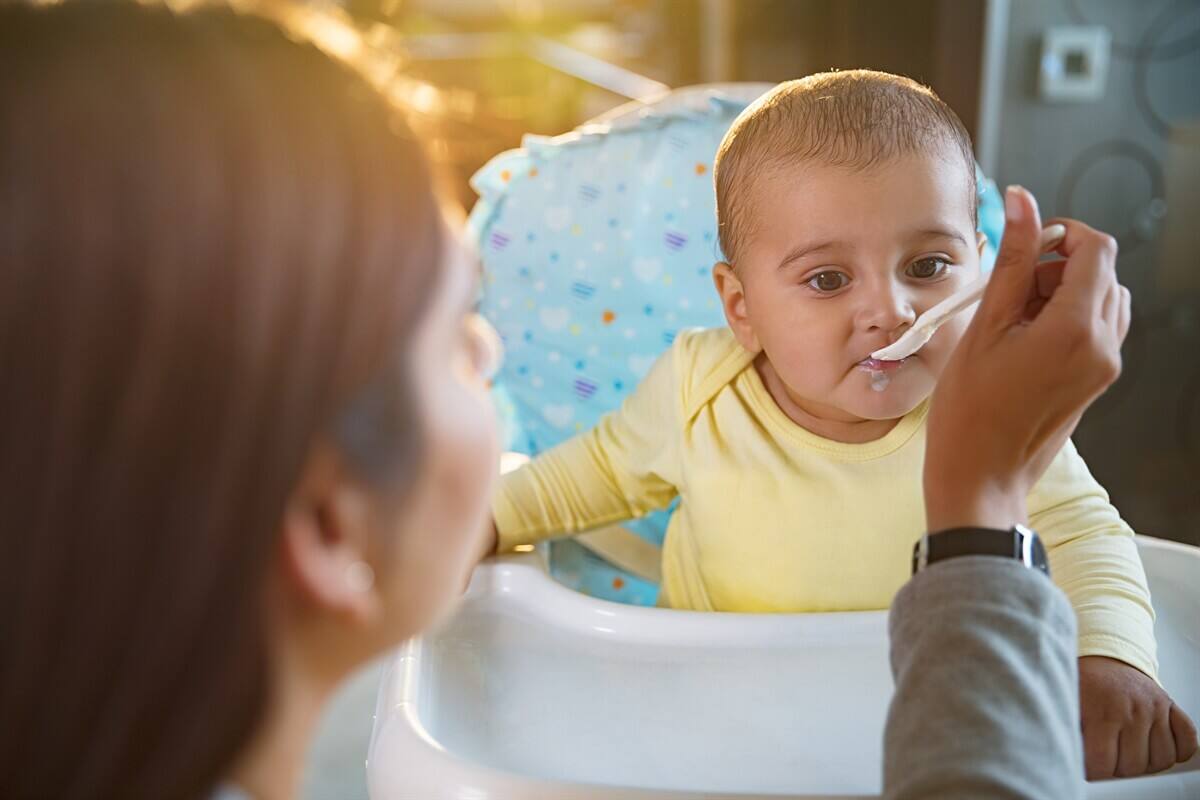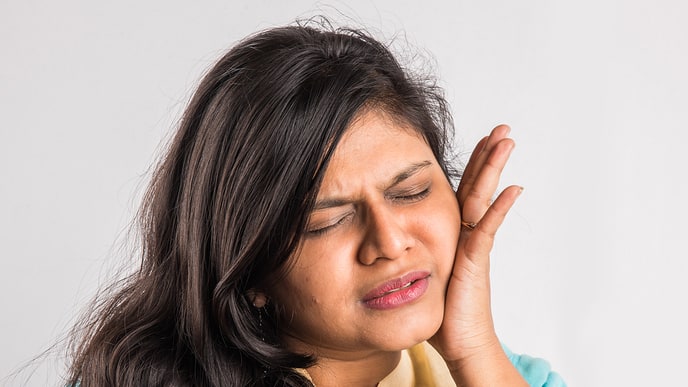What is Baby Teething Fever?
Most parents believe that fever is a common symptom of teething. Although teething may cause a slight increase in the baby’s body temperature, it should not spike the temperature so high that it causes a fever. This slight increase in body temperature is often mistaken as baby teething fever.
Thus, a baby teething fever is not typically a true fever. If your baby has a high fever while teething, another underlying cause may exist. If your baby seems very uncomfortable and is affected by a fever during teething, it is important to consult a healthcare professional for proper diagnosis and care.
Can Teething Cause a Fever in Babies?
One of the common concerns among many parents is: Can teething cause fever? The answer is no. It is natural to wonder about the connection between teething and fever. Babies can develop a fever due to other illnesses or infections. It is important to know this because if your baby has a fever with teething, it could be due to something else that might require medical attention and not always baby teething fever.
Almost any viral or infectious illness can result in fever, from colds and flu to ear infections and even urinary tract infections. As the fever can arise from a mild infection or serious illness, it is rather important to keep in mind that teething could not be the reason for the fever and to understand the real cause, and it is vital to contact your child’s healthcare provider.
Teething And Fever Symptoms
Each baby responds differently to teething pain, but common symptoms can indicate whether your little one is teething or feeling unwell. Here are the common symptoms of teething:
Excessive drooling
Rashes on the face caused as a result of drooling
Swollen, tender, or sore gums accompanied by gum rubbing
Increased biting or wanting to chew on hard things
Fussiness and irritability
Mild temperature
Bringing their hands to their mouth
Changes in sleeping patterns or disrupted sleep
It is to be noted that, contrary to the general idea, symptoms like fever, diarrhoea, diaper rash, or a runny nose are not caused by teething. It is considered a fever when the baby’s temperature is above 100.4°F (38°C). Here are the common symptoms of a baby’s fever that you may look out for:
Irritability
Body aches and weakness
Shivering or chills
Sweating and dehydration
Loss of appetite
Teething Remedies For Babies
When babies are teething, using remedies to ease their discomfort can be helpful. However, it is important to be cautious and ensure the remedies are safe and effective for the child. If you are still determining which methods are safe, it is best to seek advice from your paediatrician or pedodontist. Below are some teething remedies you should avoid and some that are safe to use.
Recommended baby teething remedies include:
Cool teething rings or objects: Give the baby a cold rubber teething ring or a teething toy to chew on to relieve gum pain. Avoid liquid-filled teething rings or plastic teethers that tend to break easily.
Rub the gums: Gently rub the baby’s gum with a clean, cool, wet washcloth. You can also use a clean finger if the teeth are close to the surface.
Watch the diet: Give the child soft and cold foods to avoid irritating the baby’s gums. This can also help soothe the pain and discomfort.
Use a bottle: Give the baby a bottle filled with cold water. Avoid filling the bottle with milk or juice to prevent tooth decay.
Seek medical advice: If the symptoms persist and do not subside, consult a paediatrician.
Oral hygiene: Brush your child's baby teeth with a small, soft-bristled toothbrush and a pea-sized amount of toothpaste, especially after meals and before bedtime.
For instance, if you are planning to use a soft-bristled toothbrush specially crafted for kids who are learning to brush their teeth, you may try the Colgate Toothbrush for Kids (0-2 years). It has extra-soft bristles that help effectively and gently brush the child's teeth and gums. Additionally, its small head helps with easy access into the child’s mouth, ensuring complete oral health.
Teething relief options that are not recommended or advised to use with caution include:
Over-the-counter pain-relief medicines that help dull the pain.
Topicals or pain relievers containing numbing compounds, similar to the gel used by dental professionals.
Herbal products or home remedies that are not proven to be effective may cause harm or side effects.
When to See a Medical Professional?
Taking care of your baby’s new teeth while they are teething is important. It is essential to consult a dental professional to get additional information about teething as well as to ensure proper dental care for your teething child. You can schedule the first dental visit for your child at about one year of age or after their first tooth has come in. If your baby has symptoms that may indicate something more than teething, such as a high fever, and you suspect it is a baby teething fever, it is also a good idea to check with your doctor.
New parents often have a lot of questions in their mind throughout the different milestones of their child’s development, including what is baby teething fever, can teething cause fever, and how long does teething fever last. While no scientific evidence links fever from teething, a baby's temperature can rise during this time. For slight temperature rises, teething relief remedies may help. However, if the child is experiencing a fever with teething due to any other underlying health condition, it is important to seek medical attention immediately.
Frequently Asked Questions
1. How long does a teething fever last?
If you are wondering how long does teething fever last, it can begin about one day before the first teeth erupt and usually goes away when the tooth cuts through the gums. While it is only a low-grade fever, the child’s temperature will decrease within a few days.
2. How do you bring down a teething fever?
You may give the baby a lukewarm bath to bring down the fever due to teething. Massaging your baby’s body with a warm washcloth and the baby’s gums with a clean finger may also help to relieve some pain and discomfort. Give them a lot of fluids, either baby formula or breast milk.
3. Does the baby's head get hot when teething?
While there is no scientific evidence that teething makes the baby’s head hot, anxiety and fussiness can sometimes cause the baby to heat up, especially its head. Additionally, the baby’s blood circulation can increase when it is moving around, which contributes to the baby’s body becoming hot, which is often mistaken for a fever with teething.
4. What are the worst symptoms of teething?
The worst symptoms of teething in children include irritability, sleep disruption, inflamed gums, a rash in the mouth, appetite loss, diarrhoea, increased biting, and even ear-rubbing. If these symptoms persist, it is important to consult a dental professional to ensure the children’s health.
This article is intended to promote understanding of and knowledge about general oral health topics. It is not intended to be a substitute for professional advice, diagnosis or treatment. Always seek the advice of your dentist or other qualified healthcare provider with any questions you may have regarding a medical condition or treatment.
ORAL HEALTH QUIZ
What's behind your smile?
Take our Oral Health assessment to get the most from your oral care routine
ORAL HEALTH QUIZ
What's behind your smile?
Take our Oral Health assessment to get the most from your oral care routine













